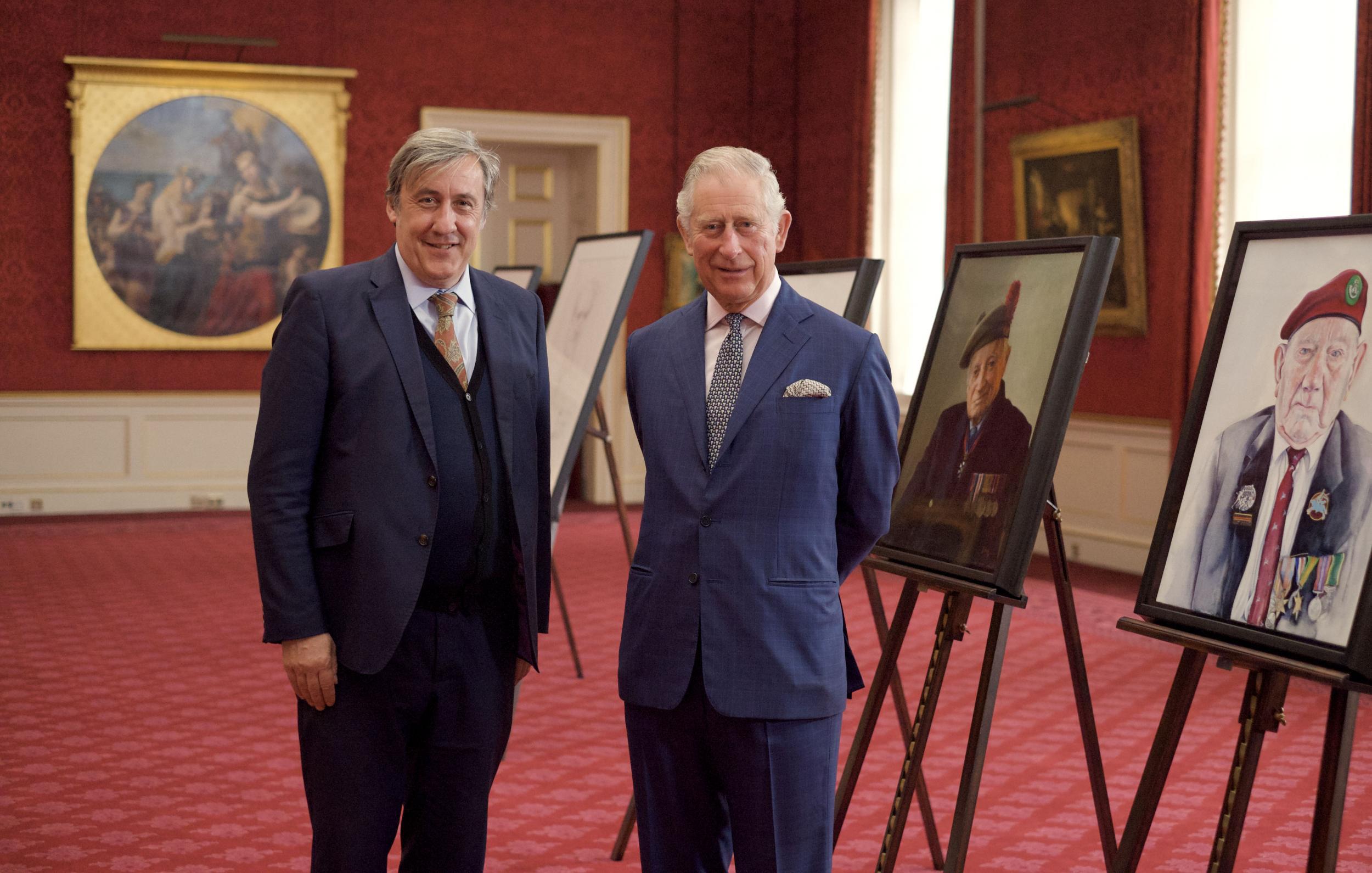TV Review, Before We Die (Channel 4): Recommended for long dark evenings
Plus: Art, Passion & Power: The Story of the Royal Collection (BBC4)

Your support helps us to tell the story
From reproductive rights to climate change to Big Tech, The Independent is on the ground when the story is developing. Whether it's investigating the financials of Elon Musk's pro-Trump PAC or producing our latest documentary, 'The A Word', which shines a light on the American women fighting for reproductive rights, we know how important it is to parse out the facts from the messaging.
At such a critical moment in US history, we need reporters on the ground. Your donation allows us to keep sending journalists to speak to both sides of the story.
The Independent is trusted by Americans across the entire political spectrum. And unlike many other quality news outlets, we choose not to lock Americans out of our reporting and analysis with paywalls. We believe quality journalism should be available to everyone, paid for by those who can afford it.
Your support makes all the difference.Although the Nordic noir thing is supposed to still be a fresh(ish) phenomenon, the latest such import from Sweden, Before We Die, had several old-fashioned touches to it. It is a long time indeed since we saw anyone light up a cigarette in a new production (I mean just a tobacco filled one without any premium skunk or anything else in it, obviously).
There also appeared quite a few of those montages of gumshoe detectives doing door-to-door inquiries with punters shaking their heads, and the unshaven grunts form the serious crimes squad sifting through piles of cardboard boxes of documents, and files with photos attached to them by paperclips. Quaint, no? We even got the old kid-witnessing-a-street-kidnapping-offering-a-vital-clue routine.
None of these had I witnessed since The Streets of San Francisco came off the air in 1977. It’s also about 40 years since the last British TV police officer pulled a bottle of Scotch out of a filing cabinet, that of course being the magnificent, and much missed, John Thaw as Jack Regan in The Sweeney, complete with the line: “Now the question is: do I write my statement and then get drunk, or get drunk then write it?”
Well, Hanna Svensson (played by Marie Richardson) and Bjorn (no surname given, played by Magnus Krepper) didn’t get drunk, so far as I can see, but they did spend quite a long time having the sort of deep Scandi-chat we imagine they get up to up there during those endless dark nights they endure. While they were staring at the map, though, they seemed to come up with the idea of where Hanna’s colleague/lover Sven had ended up, and so we were led further along a path that led via some geriatric but violent bikers to the civil war in Yugoslavia and Hanna’s own son turning out to be the missing link in the kidnap of Sven.
Being Swedish though, even the clichés were rendered in a stylish manner. Whether the producers of Swedish television now realise that it is in their financial interests to live up, or down, to every silly cliché about their country and way of life, so as to win some more export kroners, I’m not too sure, but it certainly seemed that way. This first episode of 10 (all of which are available now if you want to do the ultimate modern thing and binge a Swedish cop series) actually ended up with a Volvo V70 estate crashing in a field, from which Hanna walked away, shaken but not seriously hurt, like a dummy in a safety test video. Maybe next week the Svenska Sweeney will go all the way, stick Abba on, get tanked up on that pear cider they’re pushing so hard these days, and send the Swedish Chef off The Muppet Show to investigate the strange case of the missing Ikea Billy bookcase.
As a drama, Before We Die had everything: sex, drugs, gangsters, an excellent car chase sequence… and early retirement for Hanna, or the threat of it – two years’ salary and then her final salary pension scheme kicks in. The Stockholm police HR department were almost as intimidating as the Bosnian gangsters who were looming just out of view. It was, I have to say, quite heartening to see the touchy subject of age discrimination treated properly, and a hero the “wrong” side of 50.
This insecurity was what was haunting Hanna until just before Sven was kidnapped, and Marie Richardson’s deeply sympathetic character is the reason we wanted to know what happened next. It was only, in fact, because she loved him, so foolishly, that we cared about the fate of her married boyfriend Sven, who we saw little of and, to be honest, looks to be just another fornicating Swede. As no doubt Jack Regan would have put it. Recommended, anyway, for our own long dark evenings.
According to Andrew Graham-Dixon, a million and half people come to Windsor castle every year to “bathe in our greatest export, British pomp”. And here’s me thinking it was financial services, or maybe the Nissan Qashqai. Anyway in Art, Passion & Power: The Story of the Royal Collection, Graham-Dixon, a distinguished art historian, does us two great services. First, he allows us to have a good look around the vast accumulation of fine art, furniture, ceramics, glass, Faberge nick-nacks and precious stones that, in point of fact, every single British citizen (or subject, if you like) actually owns, because, for all practical purposes these are not the property of the House of Windsor but of the UK itself and should, for the purposes of accuracy, be better titled the “National Collection”, with much wider opportunities for the people who own it (us lot) to see, for example, Van Dyck’s Cupid and Psyche (1640), one of the most beautiful paintings ever executed.

Second was a glimpse of the near future. It came when Graham-Dixon, left in understandable awe at the Imperial State Crown, mesmerised by the ruby that was worn by Henry V at Agincourt and Edward the Confessor’s sapphire, came over all mystical: “When the crown is placed on the head of an individual they become other than the rest of mankind. They become irradiated with a sense of the divine.” And then I thought of the future coronation of Charles III, of “tampongate”, of the flunky who puts the toothpaste on his toothbrush, and Charles talking to plants and his toytown Poundbury, and, may God forgive me, I felt a really quite appalling sense of unease.
Join our commenting forum
Join thought-provoking conversations, follow other Independent readers and see their replies
Comments